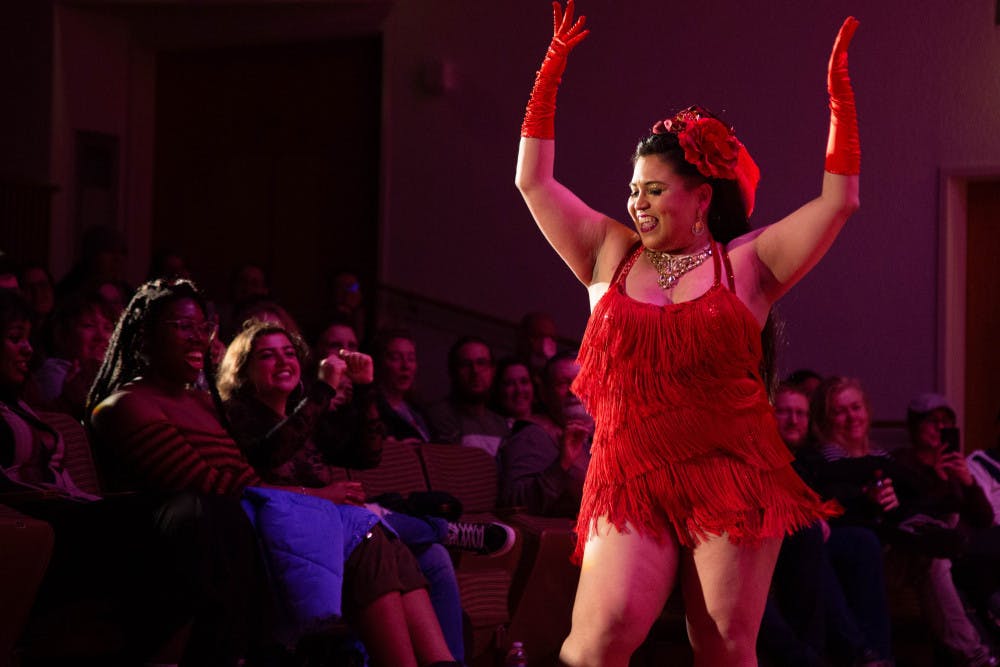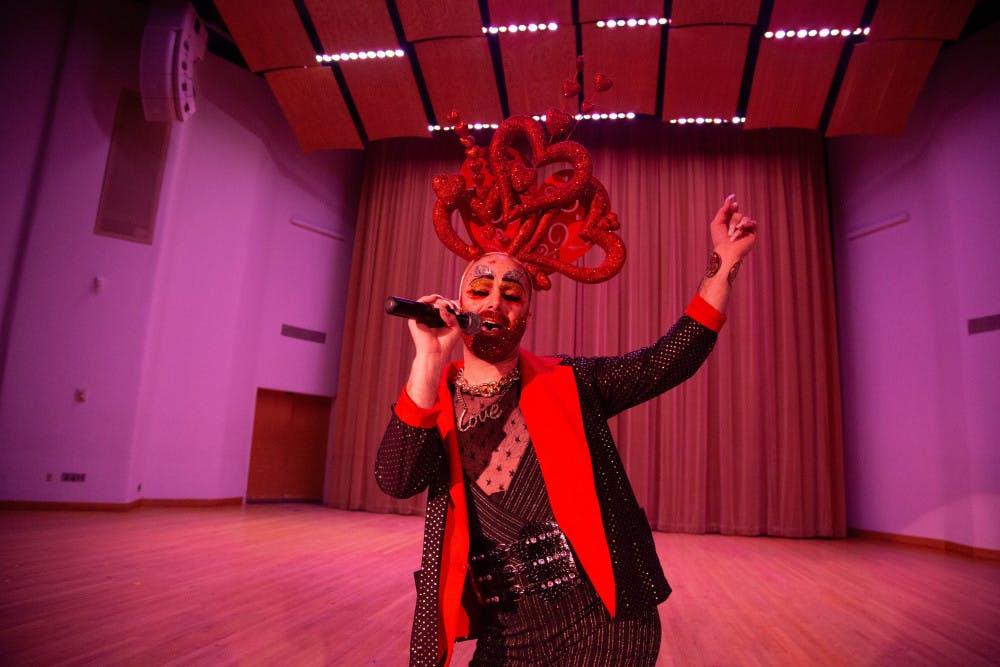[slideshow_deploy id='29549']
Drag Queen Kylie Mooncakes stole the show with her flexibility and dance abilities // Photo by Emily Porter
From the moment the show began to the final call, it was impossible not to feel the magnetic energy pulsing between the audience and the performers.
On Friday, Feb. 1, the Queer Resource Center put on its 27th annual Drag Show at Western’s Performing Arts Center.
Every death-drop and high-kick was followed by an uproar from the audience as jaws hung in amazement.
Drag queens and kings, some of whom perform at the Seattle-based bar Neighbors Nightclub and Lounge and the local Bellingham bar Rumors Cabaret, put on a fierce benefit show with 50 percent of ticket sales going to Bellingham’s very own Sean Humphrey House.
Since 1995, the Sean Humphrey House has been providing services to those infected with AIDS and HIV by providing their residents with meals, medical management, counseling and a number of other services for residents to enjoy their lives, according to their website.
“As an HIV patient who used to be homeless, it means a lot,” said Lala Amish, a 24-year-old drag queen who performed at Friday night’s show.
She said performing makes her feel alive.
“I used to be a meth-head, so finding happiness for me is hard. Meth makes it so your endorphins don’t work properly, you can’t find happiness out of normal everyday things,” she said.
Drag has given Amish a new reason to smile. She said she now uses drag as a full-time substitution for happiness.

Each of the 15 performers had their own reason for taking part in the show. Sativa, a 22-year-old queen from Seattle, said drag is a huge part of queer culture.
“Drag queens have always been at the forefront of queer issues and LGBT communities, and I think at the end of the day we are warriors and messengers, and I think it’s important to carry on that tradition,” Sativa said.
So, how does one become a drag queen?
“It just happens. I always say I have been born a drag queen. I have always had a flamboyant side, I just needed to find an excuse to be able to show it and drag is that outlet,” Sativa said.
From lip-syncing, high-energy pop songs to a “Rick and Morty” tribute number, each performer had their individualized method of entertaining.
“There’s an atmosphere that drag creates that you can’t get anywhere else. It throws this subculture in your face that not a lot of people know about,” 22-year-old drag king Orpheus said.
Orpheus finds performing as the opposite gender liberating.
“It’s an escape from being a woman. I am interested in the power dynamics of how people react to me performing as a man versus a woman,” he said.

Feeling fulfilled in the world of cross-dressing has created a powerful bond between drag performers, who call each other family.
“There is always going to be someone there for you,” said Amish, who was taken under the wing of a “drag mom” when she first started doing drag eight years ago.
“Nine times out of 10 there is going to be a local queen that’s going to be like ‘Yes honey, I will show you how to do this,’” she said.
The show raised more than $1,000 from audience contributions alone, all of which went directly to the Sean Humphrey House.
“I was constantly screaming like I was at a concert. It was a magical event to say the least,” said Tiani Guthrie, a Western student and audience member.






